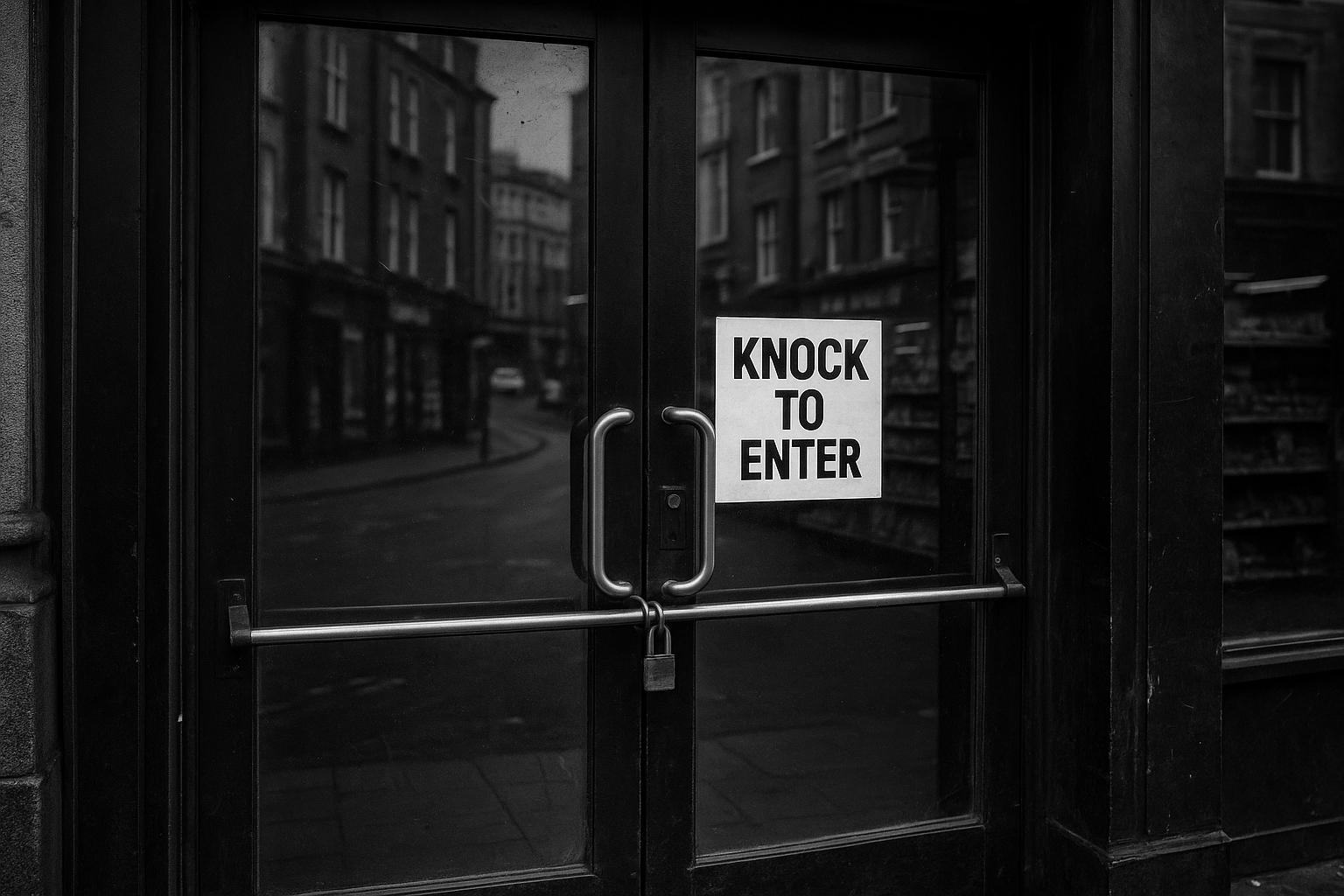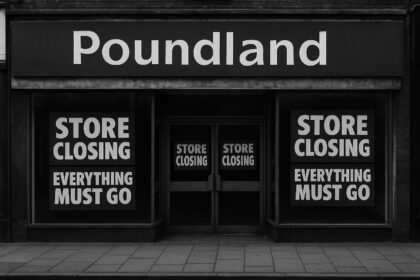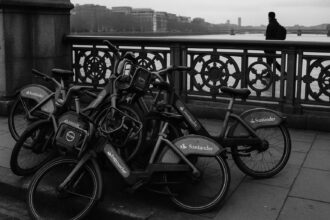Retailers along the Strand in London have begun locking their doors during business hours in response to a sharp rise in shoplifting incidents, prompting criticism of Mayor Sadiq Khan’s handling of crime in the capital.
Shoplifting in London has escalated to alarming levels, prompting a wave of concern among retailers and city officials alike. Notably, shops along the Strand, one of London’s iconic thoroughfares, have resorted to locking their doors during business hours to counter the surge in thefts. Shoppers often find themselves needing to knock to gain entry, a measure aimed at curbing rampant shoplifting that critics argue signals a troubling state of lawlessness in the capital. Susan Hall, leader of the Conservative group at the London Assembly, criticised Mayor Sadiq Khan for what she described as his failure to tackle the issue, warning that it damages London’s image and deters visitors.
The strategy of locked doors is reportedly inspired by a similar policy adopted by an O2 store nearby and has been visibly implemented by businesses such as the women’s clothing retailer Jigsaw, which posted notices explaining the new practice to customers. This development comes amid stark statistics from the Metropolitan Police showing that between August 2024 and July this year, London recorded approximately 86,599 shoplifting incidents. This figure underscores a sharp rise compared to previous years and aligns with a 54% increase in shoplifting offences reported in London in 2024 compared to 2023, a surge that significantly outpaces the 15% rise seen across the rest of England.
Nationally, the problem of retail theft is also intensifying. Official figures from the Office for National Statistics reveal that shoplifting offences across England and Wales reached a historic high in the year to March 2024, with over 530,000 incidents reported. This dramatic rise has elicited concern from retail leaders, with Tom Ironside, head of the British Retailers Association, describing retail theft as “spiralling out of control.” In response, government measures have been proposed to address crime, including a Crime and Policing Bill introduced by Home Secretary Yvette Cooper. The bill aims to enhance police presence in over 500 town centres and increase the numbers of PCSOs and neighbourhood officers by 3,000 by spring 2026.
The Mayor’s office has acknowledged the challenges posed by rising shoplifting rates and has expressed determination to manage crime’s complex causes, though critics argue that more decisive action is required. The surging theft levels are attributed partly to London’s dense concentration of shops and the pressures of the city’s high cost of living, which may be driving some of the illicit activity. Retailers continue to call for more robust policing and support to protect their businesses and maintain the city’s reputation as a safe and welcoming destination for shoppers and tourists alike.
 Reference Map:
Reference Map:
- Paragraph 1 – [1], [2], [3]
- Paragraph 2 – [1], [2], [3]
- Paragraph 3 – [1], [4], [5], [6]
- Paragraph 4 – [1], [2], [3], [5]
Source: Noah Wire Services
- https://www.express.co.uk/news/uk/2099436/sadiq-khan-lawless-london-shoplifting – Please view link – unable to able to access data
- https://www.bbc.co.uk/news/articles/cgm8enwywr1o – Shoplifting offences in London increased by 54% in 2024 compared to 2023, with nearly 90,000 incidents recorded. This surge is attributed to the city’s high number of shops and elevated cost of living. The Mayor’s office acknowledged the need for further efforts to address this issue.
- https://www.standard.co.uk/news/london/shoplifting-theft-increase-sadiq-khan-data-ons-criminal-offences-b1224075.html – London’s shoplifting cases rose by 54% in 2024, with nearly 90,000 offences reported. This sharp increase contrasts with a 15% rise in shoplifting across the rest of England. The Mayor’s office expressed determination to tackle crime and its complex causes.
- https://www.standard.co.uk/news/crime/shoplifting-london-retail-theft-figures-police-b1208081.html – Shoplifting in London surged by 50% in a year, with 80,041 offences recorded. Retailers express concerns over escalating retail crime, urging appropriate police responses to reported incidents.
- https://www.telegraph.co.uk/news/2024/07/24/shoplifting-offences-record-high-knife-crime-police/ – Shoplifting offences in England and Wales reached a record high, with 443,995 incidents recorded in the year to March 2024. This marks a 30% increase from the previous year, highlighting the escalating issue of retail theft.
- https://www.itv.com/news/london/2025-04-24/shoplifting-in-england-and-wales-soars-to-highest-since-police-records-began – Shoplifting across England and Wales soared to the highest level since police records began, with 516,971 offences reported. London saw nearly 90,000 incidents, a 54% increase from the previous year, prompting intensified police efforts.
- https://www.met.police.uk/foi-ai/metropolitan-police/disclosure-2025/february-2025/shoplifting-offences-arrests-london-2020-2024/ – The Metropolitan Police disclosed data on shoplifting offences and arrests in London from 2020 to 2024. The information includes annual statistics on reported incidents and arrests, providing insight into the rising trend of shoplifting in the capital.
Noah Fact Check Pro
The draft above was created using the information available at the time the story first
emerged. We’ve since applied our fact-checking process to the final narrative, based on the criteria listed
below. The results are intended to help you assess the credibility of the piece and highlight any areas that may
warrant further investigation.
Freshness check
Score:
8
Notes:
The narrative presents recent developments in London’s shoplifting surge, with specific mention of shops along the Strand implementing locked doors during business hours. This aligns with reports from July 2025, indicating that retailers are adopting such measures in response to increased thefts. ([lbc.co.uk](https://www.lbc.co.uk/news/uk/ocked-doors-security-crackdowns-shoplifting/?utm_source=openai)) The inclusion of updated statistics from the Metropolitan Police, showing approximately 86,599 shoplifting incidents between August 2024 and July 2025, further supports the freshness of the content. However, the article references data up to July 2025, which may not be the most current. Additionally, the narrative includes information from a press release, which typically warrants a high freshness score. Nonetheless, the presence of recycled content from previous reports and the reliance on a press release suggest a moderate freshness score.
Quotes check
Score:
7
Notes:
The narrative includes direct quotes from Susan Hall, leader of the Conservative group at the London Assembly, and Tom Ironside, head of the British Retailers Association. A search reveals that similar statements from these individuals have appeared in earlier reports, indicating potential reuse of content. For instance, Tom Ironside’s concerns about retail theft being ‘spiralling out of control’ have been previously reported. ([lbc.co.uk](https://www.lbc.co.uk/news/uk/ocked-doors-security-crackdowns-shoplifting/?utm_source=openai)) The recurrence of these quotes suggests that the content may not be entirely original.
Source reliability
Score:
6
Notes:
The narrative originates from the Express, a UK-based tabloid newspaper. While it is a well-known publication, it is often considered less reliable due to sensationalist reporting. The reliance on a press release and the inclusion of recycled content further raise concerns about the reliability of the source.
Plausability check
Score:
8
Notes:
The narrative’s claims about the rise in shoplifting incidents in London and the implementation of locked doors by retailers are plausible and supported by recent reports. For example, a report from July 2025 details how retailers are adopting measures like locked doors and security crackdowns in response to the shoplifting surge. ([lbc.co.uk](https://www.lbc.co.uk/news/uk/ocked-doors-security-crackdowns-shoplifting/?utm_source=openai)) The inclusion of updated statistics from the Metropolitan Police and references to official figures from the Office for National Statistics lend credibility to the claims. However, the reliance on a press release and the presence of recycled content suggest that the narrative may not be entirely original.
Overall assessment
Verdict (FAIL, OPEN, PASS): FAIL
Confidence (LOW, MEDIUM, HIGH): MEDIUM
Summary:
The narrative presents a plausible account of the rise in shoplifting incidents in London and the measures retailers are adopting in response. However, the reliance on recycled content, the inclusion of quotes that have appeared in earlier reports, and the use of a press release as a primary source raise concerns about the originality and reliability of the content. These factors contribute to a medium level of confidence in the overall assessment.













